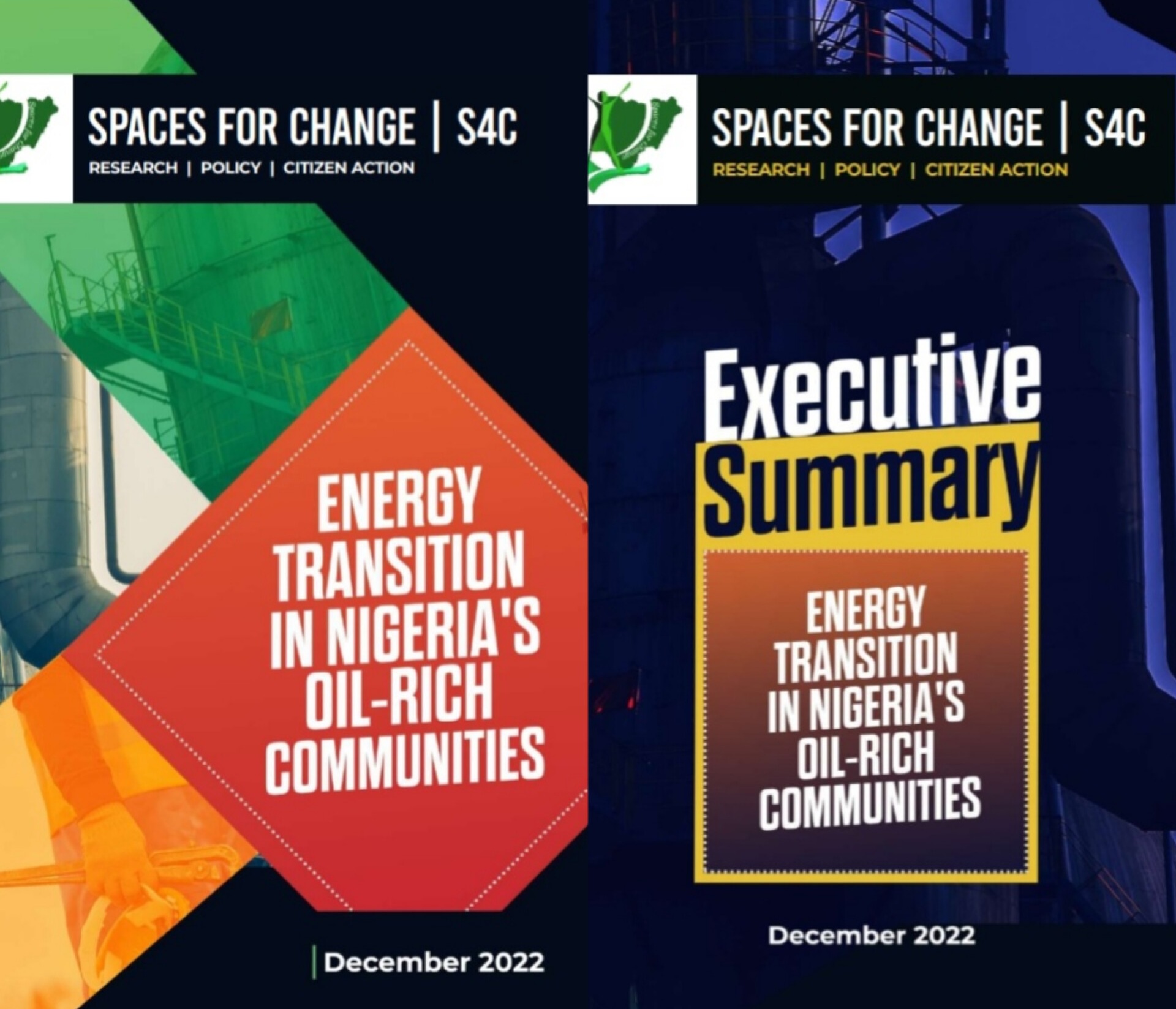Download New Report: ‘Energy Transition In Nigeria’s Oil-Rich Communities’ Unveiled By S4C, YEAC, Extractive360

By Kelvin Alohan
Against the backdrop of Nigeria’s commitment to net-zero emissions by 2060, this research conducted under the project titled ‘From Exclusion to Inclusion in National Just Transition Plans’, probes the alternatives placed before communities and non-state actors whose livelihoods are dependent on fossil fuel extraction and local refining.
The research was supported by Ford Foundation’s Extractive Industry and Climate Change Governance Fund (EICCG Fund) managed by Africa Centre for Public Policy (ACEP) and implemented by Spaces for Change, Youths and Environmental Advocacy Centre and Extractive360.
Some key findings:
National energy transition plans are silent on communities who have borne the brunt of fossil fuel extraction for several decades and whose livelihoods are dependent on crude oil and local refining and neither made arrangements for cleanup, remediation, compensation, and rehabilitation nor for addressing the massive environmental damage that has accompanied the country’s protracted dependence on fossil fuels.
Communities want inclusion, participation, enforceable contracts, alternative livelihoods, and environmental justice in the green economy. Oil-rich communities want to play an active role, and not be relegated to mere spectators and recipients of handouts—packed as corporate social responsibility (CSR) initiatives—in the green economy.
Community support for energy transition is conditioned on the presentation of a clear and predictable roadmap for righting the wrongs that fossil fuels have done to extractive communities.
To leapfrog into prosperity in the green economy, a phased wind-down of economic dependence on the center, giving states the autonomy to manage their own natural and renewable resources is imperative.
Download the complete report: ENERGY TRANSITION IN NIGERIAS OIL RICH COMMUNITIES full report
Download the executive summary: EXECUTIVE SUMMARY. ENERGY TRANSITION IN OIL RICH COMMUNITIES report























